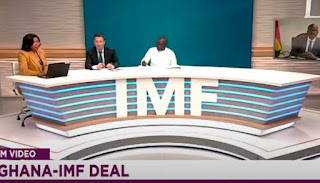Beyond the razzmatazz of the IMF bailout
After 10 months of negotiations, the International Monetary Fund (IMF) has eventually approved a $3 billion Extended Credit Facility for Ghana, out of which $600 million have been safely clinched. The government is scheduled to receive the rest of the funds in seven tranches after a successive series of reviews over the three-year period. With all the recriminations and hotheaded politics that clouded the ten-month-long negotiations, one thing was clear—the country was “bleeding” profusely. In order to become worthy of the bailout, the government deployed a number of measures such as the e-levy, domestic debt exchange programme and other tax adjustments. The moribund economy needed those oxygen tanks.
Now Ghana had successfully secured a $3 billion IMF bailout. What does it mean for you and me? What’s in it for us as citizens? For whatever reasons, spokespersons for the government gave us all the reasons why we had to go for the programme but never bothered to tell us what will happen afterwards. Just like every one of the 17 times Ghana has been to the IMF, this one too, has its concomitant conditionalities. These conditionalities are aimed at reviving the economy, but, just like making an omelette, some eggs have to be broken. The goal is to achieve a tax-to-GDP ratio of 18% before the programme ends in 2026.
Aside from the cap on salary increment, personal income tax is set to increase progressively in tandem with exchange rate movement and inflation. Additionally, there is going to be a quarterly utility tariff adjustment. This means electricity and water bills would be adjusted upward in every four months. This inevitably will further burden the already financially strained citizens.
Even at the staff level agreement with the IMF, Parliament had passed the following tax bills: Excise Duty Amendment Bill, Growth and Sustainability Bill, Income Tax Amendment Bill, all geared towards securing the bailout. There are also removal of Value Added Tax (VAT) exemptions, corporate income tax reforms that will phase out tax holidays and exemptions, and the reduction of customs exemptions. However, in a larger sense, there’s a silver lining here because the tax exemptions will increase government revenue and encourage fiscal discipline.
All of these conditionalities are aimed at addressing the country’s economic woes, but the attendant conditionalities will require some more sacrifices on the part of Ghanaians. While there is an ongoing Debt Restructuring Programme for external creditors, rumor has it that Domestic Debt Exchange Programme part II is imminent. This programme is a gift that keeps on giving.






Comments
Post a Comment